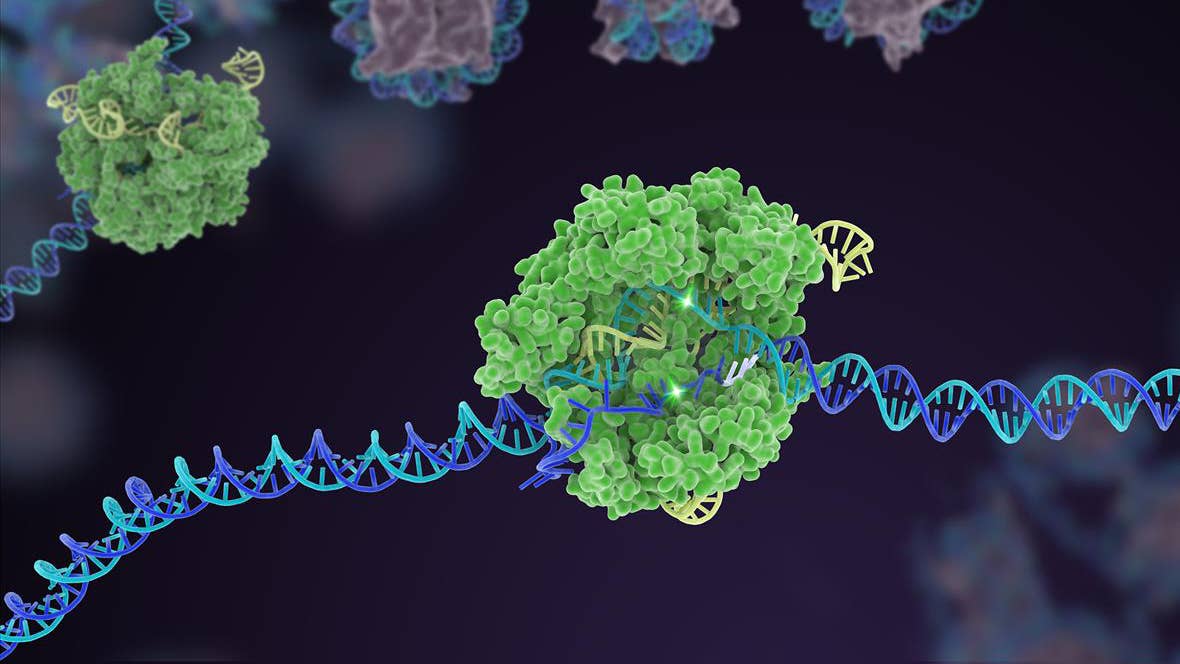Moderna’s mRNA Vaccine for HIV Is Starting Human Trials

Share
Before 2020, many of us had never heard of mRNA. With the development of Covid-19 vaccines dependent on this molecule, though, it was all over the news. Covid was the first disease mRNA therapeutics tackled, and given the success of the Pfizer and Moderna vaccines at preventing severe cases of the virus, it won’t be the last.
New candidates are lining up, with scientists saying mRNA could make it possible to develop vaccines against diseases that, until now, haven’t had solutions in sight. One of these is HIV; Moderna (whose name, by the way, comes from “modified RNA”) launched trials of its experimental mRNA-based HIV vaccine, called mRNA-1644, this week.
Phase 1
The Phase 1 trial will consist of giving the vaccine to 56 adults who don’t have HIV, with the primary goals being to evaluate its safety and monitor the development of an immune response in participants. In addition to the initial version of the vaccine, Moderna also developed a variant called mRNA-1644-v2-Core (catchy, isn't it?).
As detailed in Moderna’s August 11 submission to the National Institutes of Health’s Clinical Trials registry, participants in the trial will be split into four different groups, with one group getting mRNA-1644, a second group getting mRNA-1644-v2, and the remaining two groups getting a mix of both versions. Rather than a blind trial, where people don’t know which injection they’re receiving, participants will be informed of what they’re getting.
The Phase 1 trial is scheduled to take around 10 months. Later-stage trials will likely take much longer than Covid-19 trials did; as Covid spread like wildfire in 2019 and 2020, getting hundreds of thousands sick, it was much easier to give people a vaccine and quickly see who became infected and who didn’t. HIV is, thankfully, far less prevalent, and you can go a lifetime without ever coming into contact with the virus.
mRNA 101
As you’ve probably heard by now through reading up on the Covid vaccines, mRNA-based versions work a little differently than traditional vaccines, which used a weakened piece of virus to expose our bodies to it.
As detailed in an excellent, very-worth-listening-to ‘Gamechangers’ podcast from The Economist, mRNA vaccines are intended to train our cells to create proteins to fight viruses. mRNA is the intermediary between DNA and proteins, and proteins control pretty much everything that happens in our cells. DNA makes mRNA, which in turn acts as a “messenger” and instructs our cells to make proteins.
The “workshop” where the proteins get made is the cell’s ribosome. “This is fundamentally the idea behind RNA therapeutics,” said Natasha Loder, health policy editor at The Economist. “It’s about taking control of that workshop...by essentially manipulating these messengers.”
One of the biggest obstacles scientists had to solve was getting modified RNA into cells without it triggering an immune response. "Part of the mRNA molecule was alerting the immune system, and just by tweaking the structure of one of those molecules, it...was easier for the molecule to sneak in without being recognized," said Loder.
Scientists at the University of Pennsylvania were able to create mRNA that could get past cells' defenses, but still be recognized by the ribosome. For the Covid vaccine, this entailed getting the ribosome to start cranking out that spike protein.
Be Part of the Future
Sign up to receive top stories about groundbreaking technologies and visionary thinkers from SingularityHub.


24 to 48 hours after getting a shot of the vaccine, the recipient’s cells start to manufacture the spike protein. The body tags it as an invader and launches an immune response. Then, when the person comes in contact with the real virus, their cells are already prepared to fight the infection before it takes over.
The HIV virus is a bit more complicated. It creates new strains at a rapid rate, meaning that a vaccine targeting a single surface protein wouldn't work. Instead, this vaccine's aim will be to generate broadly neutralizing antibodies (bnAbs) that are effective against many variants.
A New Frontier
Much of the vaccine hesitancy we’re seeing is due to worries that the vaccines were developed too quickly, and are too new to be proven safe. However, as the podcast explains in excellent detail, mRNA therapeutics aren’t a brand-new technology; research in the field began as early as the 1970s. Now that we have a working "platform technology" in mRNA, it should be applicable to many other diseases.
Whether the HIV vaccine will work as well as the Covid vaccine remains to be seen—and it will take far longer to know—but initial indications are promising. Earlier this year, the International AIDS Vaccine Initiative and Scripps Research tested a piece of the vaccine, and saw 97 percent of study participants developing the intended immune response.
If it's ultimately successful, an HIV vaccine could be particularly helpful in countries or areas where people don't have easy access to antiretroviral and pre-exposure prophylaxis (PrEP) drugs.
mRNA is now being touted as a potential tool for vaccines against everything from malaria to cancer. In the wake of so much catastrophe, we can see this technology as one good thing the Covid-19 pandemic left in its destructive wake; it truly seems we’ve approached a new frontier in medicine.
Vanessa has been writing about science and technology for eight years and was senior editor at SingularityHub. She's interested in biotechnology and genetic engineering, the nitty-gritty of the renewable energy transition, the roles technology and science play in geopolitics and international development, and countless other topics.
Related Articles

Souped-Up CRISPR Gene Editor Replicates and Spreads Like a Virus

Your Genes Determine How Long You’ll Live Far More Than Previously Thought

Google DeepMind AI Decodes the Genome a Million ‘Letters’ at a Time
What we’re reading